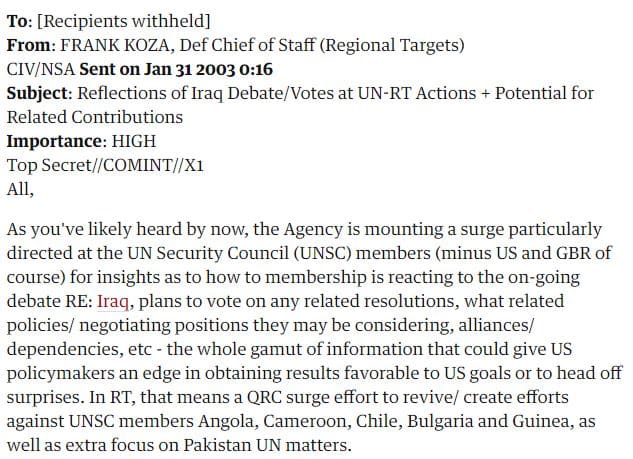Over at The Government Accountability Project, they use the upcoming film “Official Secrets” to talk about potential national security whistleblower missteps. The film, which opens at the end of August, tells the tale of British intelligence translator Katharine Gun. In 2003, she was charged under the Official Secrets Act for passing a memo to a reporter. She believed the note was from US spies asking for negative information on nations whose votes were needed for UN approval of the Iraq war.
Movies like this one demystify whistleblowing…Nonetheless, the Hollywood version of Gun’s whistleblower story contains a few key examples of risky choices that would have likely imperiled the success of a national security whistleblower, at least in the U.S.
They break it down to five common mistakes, pointing out that the whistleblower law in the US is different than in the UK.
1. Speaking with a journalist without first consulting with an attorney
Gun’s choice to print out the classified memo and remove it from the premises would have certainly broken American law, but there are ways for national security whistleblowers to legally blow the whistle through protected channels. Journalists likely won’t have deeper knowledge of the complicated patchwork of protections offered to whistleblowers and crucially may lack the expertise necessary to advise national security whistleblowers…Whistleblower attorneys will best know how to counsel whistleblowers, and, particularly intelligence whistleblowers who have limited legal protections.
2. Copying classified information from a work email into another saved file
3. Printing out a copy of confidential or classified materials at work
4. Taking printed classified material from work home
In the film, Gun copies content from a classified memo into another document, which she saves to a floppy disk under the title “To-Do List.” She then prints out a copy of the memo at work and removes the print out of the classified memo by folding it up and hiding it in her jeans’ pocket. Though this crude method was effective, at least within the universe of the film, in today’s world a national security whistleblower would likely be immediately detected. Moreover, such actions are unquestionably illegal in an American context.
5. Blowing the whistle without talking to your family
This part of the GAP post includes a spoiler. But, the blowback most whistleblowers endure impacts those around them. Best to tell the spouse to hold on tight.
Resources:
